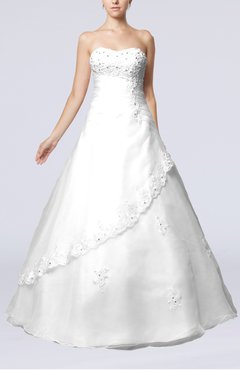Your wedding ceremony music can set the entire tone of your event. It is really crucial that you take time to select wedding music which best reflects your feelings, your personality and the theme of the wedding you want to create. And don't forget to go to UWDress.com for your bridal dresses.
Here are some tips to help you pick out truly unique wedding songs:
1. Determine the style you want present at your wedding. Do you want an informal wedding, in which more popular musical choices would be acceptable? Or do you want to stick with the large traditional wedding, in which instrumental and classical music would be more properly suited?
2. Consider the setting of your nuptials. If you are using a church as your venue, keep in mind that since it is a place of worship, some churches may not allow secular musical selections. Be sure to check with your wedding planner or a member of the church.
3. Hire a band or musician. Look for an experienced professional that has played wedding ceremonies before. Pick someone you can communicate with well and will be able to help you choose the best songs to play.
4. Evaluate how many songs you will need to cover the entire ceremony. You will need, at minimum, music as guests arrive, a song for the seating of the mothers, the processional, the entrance of the bride, lighting of the unity candle and music for any other special moments you choose to include in your ceremony such as a rose ceremony for mothers or the recognition of lost loved ones.
5. Keep the number of guests to ceremony musicians ratio in mind. A quartet is appropriate for a group of 200. To cut back and save, you might consider hiring a duo or trio and a sound person. Or, even better, ask your band or DJ to come with a couple of mics or an amplifier. Also be mindful of what will sound good amplified. Of the instruments typically requested for weddings, guitars and string instruments (like violins and cellos) resonate best.
6. Decide if you want any musical solos. Vocalists and soloists can add a very personal touch to a wedding as well as include a talented loved one in the ceremony. A good place for a vocalist is during the interlude.
7. Always ensure that you have given clear instructions to your live band, DJ or whoever else is responsible for your wedding music, so that both they and you know what music is being played at what time during your wedding day. Save yourself the upset and do a music run-through before the wedding to allow for any changes you may need to make.


















